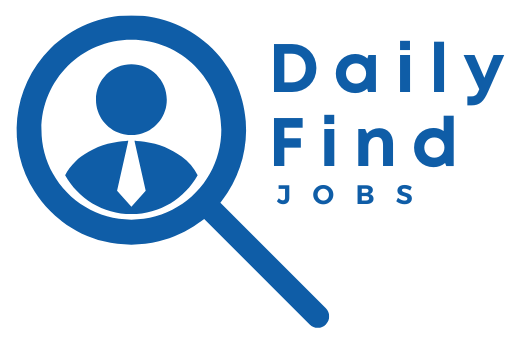It’s crucial to ask questions in a job interview that demonstrate your intelligence and interest. By inquiring about company culture and job expectations, you not only learn more about the role but also leave a lasting impression. Ensure you cover aspects like growth opportunities and team dynamics, as these can reveal a great deal about your potential future workplace. Finally, understanding leadership styles provides insight into how your skills might thrive under different management approaches. These inquiries not only reflect your eagerness to join but also show how you critically evaluate your work environment.
Understanding Company Culture
Company culture is an integral aspect when considering a new job. During interviews, asking about company culture can reveal insights about the work environment and shared values. When inquiring about company culture, consider asking about the company’s core values and how they are implemented in daily operations. This question helps determine if the organization’s values align with your own.
Understanding how the company enhances and supports its culture can be enlightening. You could ask, ‘How would you describe the work environment here? Can you share examples of how employees engage with one another and contribute to the culture?’ This line of questioning encourages interviewers to offer concrete examples and anecdotes that paint a clearer picture.
Consider also querying about work-life balance. Ask something like, ‘How does the company promote a healthy work-life balance?’ or ‘What initiatives does the company have in place for employee wellness?’ Understanding this shows that the organization values its employees’ time outside of work.
Understanding the company’s approach to diversity and inclusion can also be crucial. Inquire, ‘What steps does the company take to ensure diversity and inclusion within the workforce?’ This reflects the company’s dedication to fostering an environment where everyone feels welcome and valued.
Finally, consider the opportunities for social involvement such as company events or team-building activities. Asking ‘What types of social events does the company organize for its employees?’ can provide insights into interpersonal relationships and morale within the company.
Clarifying Job Expectations
When you’re meeting with a potential employer, clarifying job expectations is crucial. You want to ensure that the role aligns with your skills and career goals. Begin by asking specific questions about the daily responsibilities and key objectives of the position. This helps you understand what is expected of you and ensures there are no surprises.
Ask about the key performance indicators (KPIs) used to evaluate success in the role. This will give you insight into what the company values most and how they measure performance. Inquire about the typical challenges one might face in this role and what support is available to overcome these hurdles.
Understanding the Role’s Priorities
It’s also beneficial to ask how the role contributes to the company’s overall goals and mission. This helps you grasp the importance of your position within the organization. Additionally, ask about any flexibility in job duties and how tasks are prioritized. This will give you a clearer picture of what day-to-day life might look like.
Clarifying these expectations not only helps you prepare for your potential responsibilities but also shows the interviewer that you are proactive and serious about your career. This detailed understanding fosters a more effective working relationship if you are offered the position.
Exploring Growth Opportunities
When you’re in an interview setting, asking questions about growth opportunities is crucial to understanding how a company supports its employees’ careers. Inquire about any ongoing professional development programs or mentorship schemes that the company offers. It’s also helpful to know if there are regular performance reviews that might facilitate career advancement. Try asking, “What kind of opportunities does the company provide for professional growth?”
Training Programs
Explore if there are specific training programs tailored to your role. This could be anything from technical skills workshops to leadership development courses. It’s important that the company invests in its employees.
Promotion Pathways
Ask about the typical career progression for someone in your position. Understanding the average time it takes to move up can help you set realistic goals. Also, inquire about any success stories where employees have grown significantly within the company.
Supportive Leadership
Strong leadership is key in facilitating employee growth. Consider questions like, “How does the leadership team support career development?” and “Are there opportunities to work on cross-functional projects that can expand my skill set?” These details can offer insight into whether the company environment is nurturing and conducive to your professional development.
Discussing Team Dynamics
Understanding team dynamics during an interview helps you gauge how well you might integrate with your prospective colleagues. You can ask specific questions to uncover this crucial aspect. For instance, inquire about team collaboration: “Can you describe the team’s collaborative process?” This query provides insight into their communication styles and conflict resolution strategies.
Another aspect to explore is the team’s decision-making process. You might ask, “How does the team typically make decisions when faced with a challenge?” This can reveal whether the group prefers consensus or top-down directive, which can greatly impact your role and experience within the team.
You could also explore how success is celebrated within the team. A question like, “How does the team celebrate success or milestones?” sheds light on the morale and cohesion among team members. Understanding if achievements are recognized individually or collectively gives an idea of the work environment.
Don’t overlook team composition. You might ask, “Who will I be working closely with, and how do our roles intersect?” This information will help you anticipate your daily interactions and prepare for the relationships you’ll build within the organization.
Lastly, it’s beneficial to learn about how feedback is given and received among team members. Consider asking, “Can you share how feedback is typically provided within the team?” This can tell you if the team culture encourages constructive feedback or if it might pose challenges.
Delving into Leadership Styles
When considering leadership styles, it’s important to think about how they will affect your day-to-day work life and your ability to thrive within the company. Different leaders have different ways of managing their teams, and understanding their style can give you insight into what your work environment might look like.
Ask your interviewer about their leadership philosophy. Do they prefer a hands-on approach, or are they more of a laissez-faire manager? Their approach can greatly impact your working experience.
Inquire about decision-making processes. Understanding whether decisions are made collaboratively or by a single person can help you gauge how involved you’ll be in strategic planning.
Consider asking about feedback methods. Regular feedback can be crucial for professional growth. Are there structured performance reviews, or is feedback more informal?
Understanding leadership styles can also help you assess how conflict is managed within the team. Do leaders facilitate open dialogue or is there a more hierarchical approach to resolving disagreements?
Finally, find out how leaders handle failures and setbacks. This can provide a window into the company’s resilience and its approach to problem-solving, helping you understand how they support their team members in challenging times.

